No one can stop the heart of a Grand Slam champion from retiring, not even WTT rules, especially when they haven't been tested in practice.
In recent days, the world of table tennis has been shaken! WTT announced that in the new year, players who do not participate in competitions as required will be penalized with point deductions and fines.

Fan Zhendong responded by saying that he is unable to pay the fines and will withdraw from the overall rankings. Chen Meng and Ma Long followed suit.
The public is shocked, questioning whether WTT has the authority to deduct points and impose fines. It seems absurd to demand that veteran champions must participate in all scheduled competitions without exception, regardless of their health or personal circumstances.
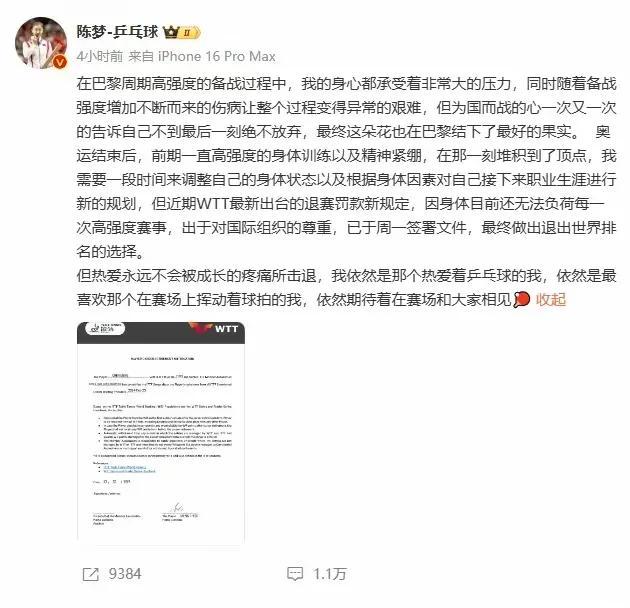
This situation has put WTT under intense criticism, and Liu Guoliang, as the head of the organization, finds himself at the center of the storm. Opinions are divided on who is right and who is wrong.
Why did Fan Zhendong, Chen Meng, and Ma Long choose to withdraw from the rankings?

Withdrawing from the rankings means gaining autonomy over participation in competitions but also means being ineligible for international events like the World Championships and Olympics. Consequently, they would no longer be seen in major competitions.
Ma Long's decision to withdraw from the rankings was unexpected yet unsurprising. As a seasoned player and a double Grand Slam champion, he was already looking for an opportunity to retire gracefully. This incident provided the perfect chance for him to step back without drawing too much attention.
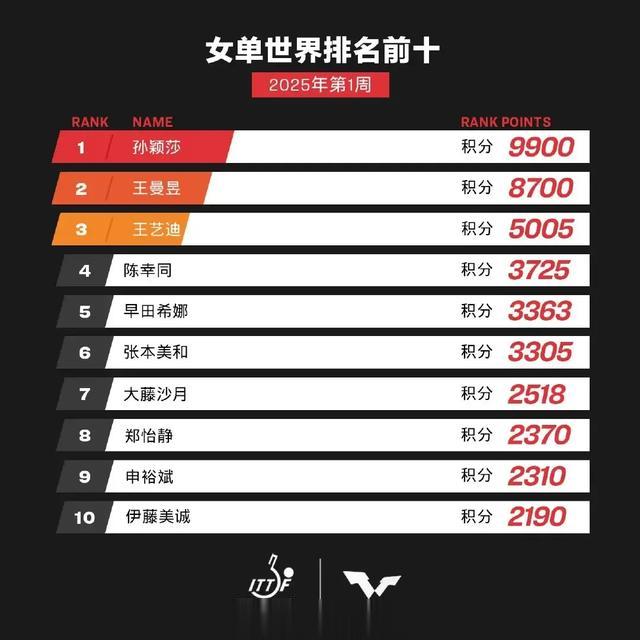
At nearly 40 years old, constantly traveling to compete for minimal financial gain is neither cost-effective nor physically sustainable.
Chen Meng, aged 30, recently experienced a disheartening moment at the Olympics, leaving her mentally and physically exhausted. She has largely withdrawn from competitions, focusing instead on leisure and relaxation. Despite still having the potential to continue playing for several more years, she has chosen to exit the world rankings, citing similar reasons to Fan Zhendong.
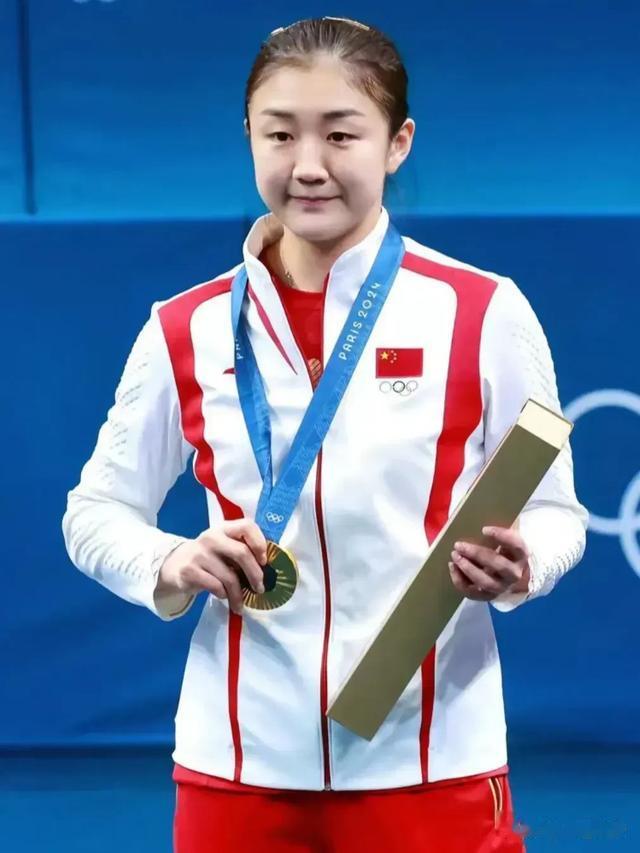
The real reason behind their decisions is a desire not to be controlled, to avoid the constant demands to participate in every scheduled competition, and to resist the threat of fines for non-participation. They feel that their dignity and freedom are being violated.
Fan Zhendong's withdrawal came as a shock to everyone, as he is in his prime, both technically and mentally at the peak of his career. However, he has resolutely decided to step down, claiming exhaustion and limited energy, unwilling to meet all of WTT's requirements or face the consequences of point deductions and fines.
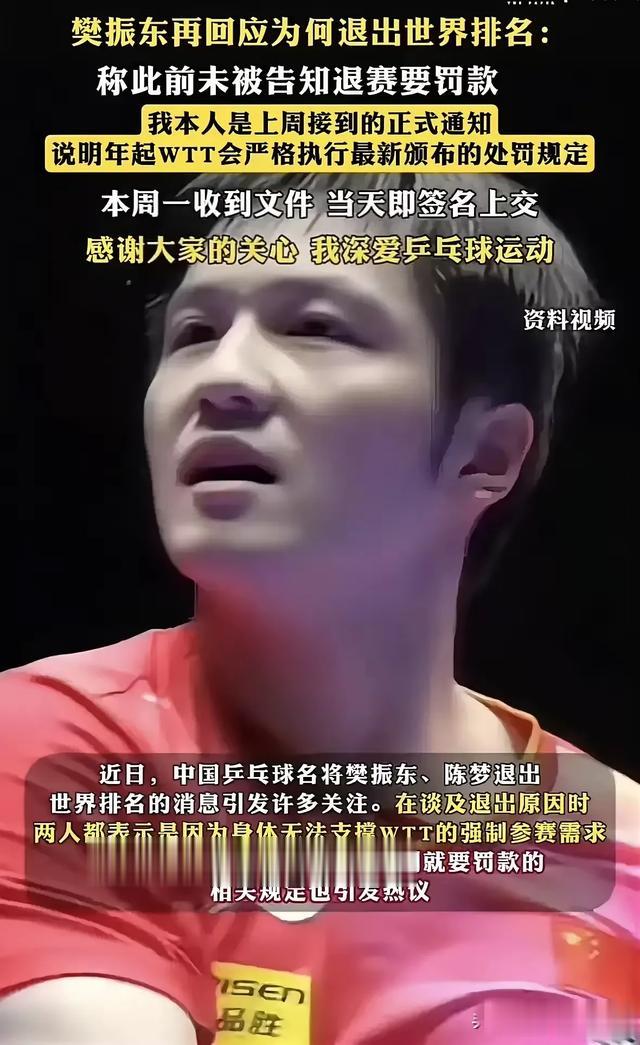
It is known that Fan Zhendong's decision is closely linked to previous controversies at the Olympics and the so-called "fan culture" in recent years. Yet, these reasons cannot be openly discussed; they can only be pondered privately.
Thus, three iconic figures in the table tennis world have hastily retired due to the mandatory participation rule, leaving fans feeling regretful at the prospect of never seeing them compete again.

There are deeper reasons for their decisions, known to themselves, WTT, and Liu Guoliang, but revealing them would appear overly self-serving.
Let's talk about Zhang Yining, the "Great Demon King." It is said that she retired early because she could not find any worthy opponents. The song "How Lonely Invincibility Is" could have been written for her.

Zhang Yining, a Grand Slam champion, had conquered the world and won everything there was to win. Before retiring, she had no concept of an opponent.
As a result, she lost motivation to compete, having achieved all possible honors and titles. What more could she strive for on the court? When all goals are accomplished, one can feel mentally and physically drained.

A similar situation now arises with Fan Zhendong, Chen Meng, and Ma Long, all Grand Slam champions who no longer need to prove themselves or seek further glory. It becomes challenging for them to fully commit to each match with the same intensity and passion.
They have achieved honor and wealth; it is time to enjoy the later stages of their careers. They should have the freedom to choose which competitions to participate in based on their physical and mental conditions. However, WTT's approach forces them to continue sweating it out on the court.
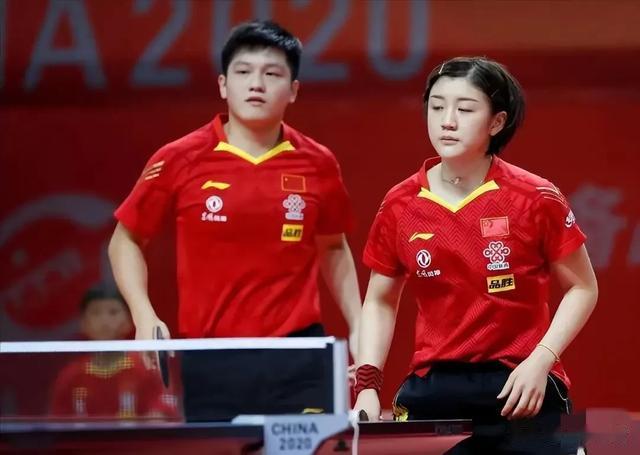
Naturally, they are unhappy. Grand Slam champions have earned the right to make such choices. Most other players would not dare to do so, as they have yet to achieve their dreams and still have room for growth.
WTT miscalculated by enforcing participation and threatening penalties for non-compliance, potentially revoking players' eligibility to compete.
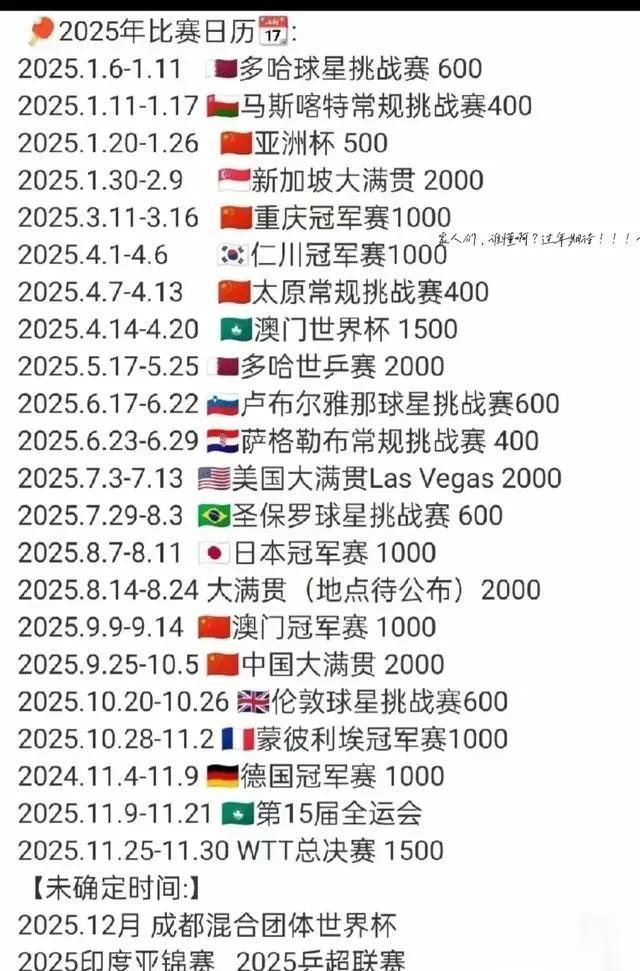
For ordinary players, such regulations may be acceptable, as they渴望更多的比赛机会、曝光度、荣誉和奖金。
However, this rule overlooks the feelings of meritorious veterans and players with outstanding contributions.
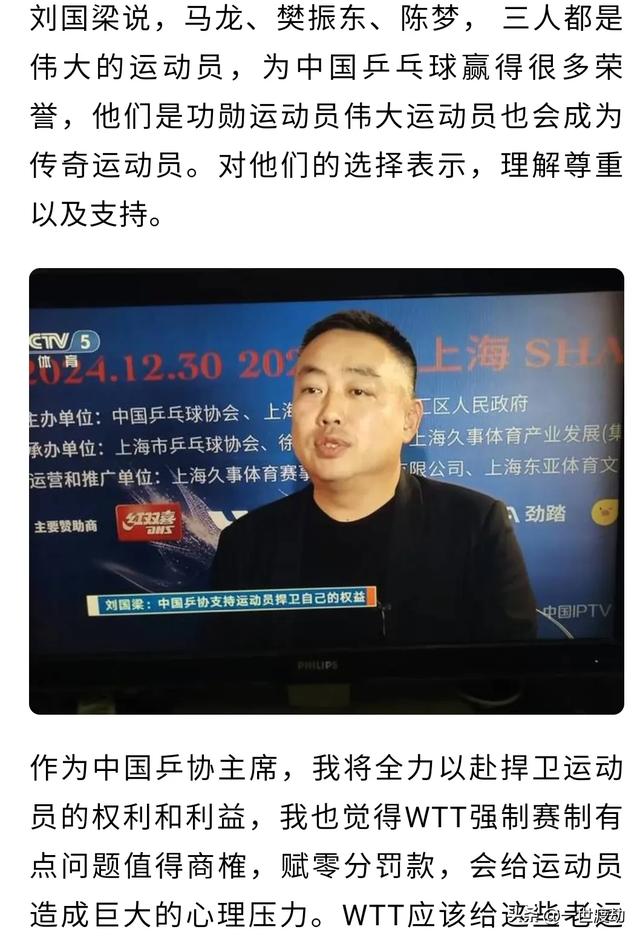
Now, with three prominent players withdrawing from the rankings and no longer subject to the Table Tennis Association's management or future international competitions, it deals a significant blow to the excitement of future matches and serves as a harsh wake-up call.
Over the years, both the World Table Tennis Federation and the newly established WTT Table Tennis Company have been dedicated to globalizing table tennis, promoting its prosperity, encouraging broader participation, and raising the profiles of more players, allowing them to reap benefits.
The intentions are noble, and the current achievements are remarkable, with many players, including top-five ranked athletes, benefiting from these efforts.
Following the incident, WTT released a statement expressing respect for the veterans' choices while subtly suggesting that the rules were set in advance and not aimed at any individual.
However, the flaw in the regulations is apparent, as they risk excluding meritorious players.
Liu Guoliang, perceptive to this issue, recently told reporters that the point deduction and fine regulations are not yet perfect. He emphasized the need for greater tolerance and preferential treatment for veterans, granting them certain exemptions to keep them engaged in competitions, which would benefit spectators, businesses, and players alike.
Granting privileges to certain players, exempting them from rules, is not uncommon in the sports world, be it basketball or football, where special rights exist!
Dikembe Mutombo enjoys an NBA privilege: wagging his finger! Other players are fined for doing this, but Mutombo is allowed.
LeBron James views a four-step layup as reasonable, a move sanctioned by the league, which others can attempt at their own risk.
Superstars often enjoy the privilege of vetoing trades, wielding significant influence over their team's decisions. To attain this status, one must first become a superstar.
Returning to the realm of table tennis, amidst its commercialization, everything should serve the interests of the game. How can we simply and crudely resolve issues with fines and point deductions? We must encourage veterans to shine and motivate meritorious players to participate more in competitions.
Privileges must be granted. Once players become stars, they possess the capital to negotiate with companies. Where concessions are necessary, they must be made, demonstrating foresight and serving the greater good.
Therefore, the point deduction and fine regulations will be revised. Liu Guoliang has hinted at changes, aiming to make them more reasonable, showing leniency and indulgence towards meritorious players, which ultimately supports the trend of commercializing table tennis.